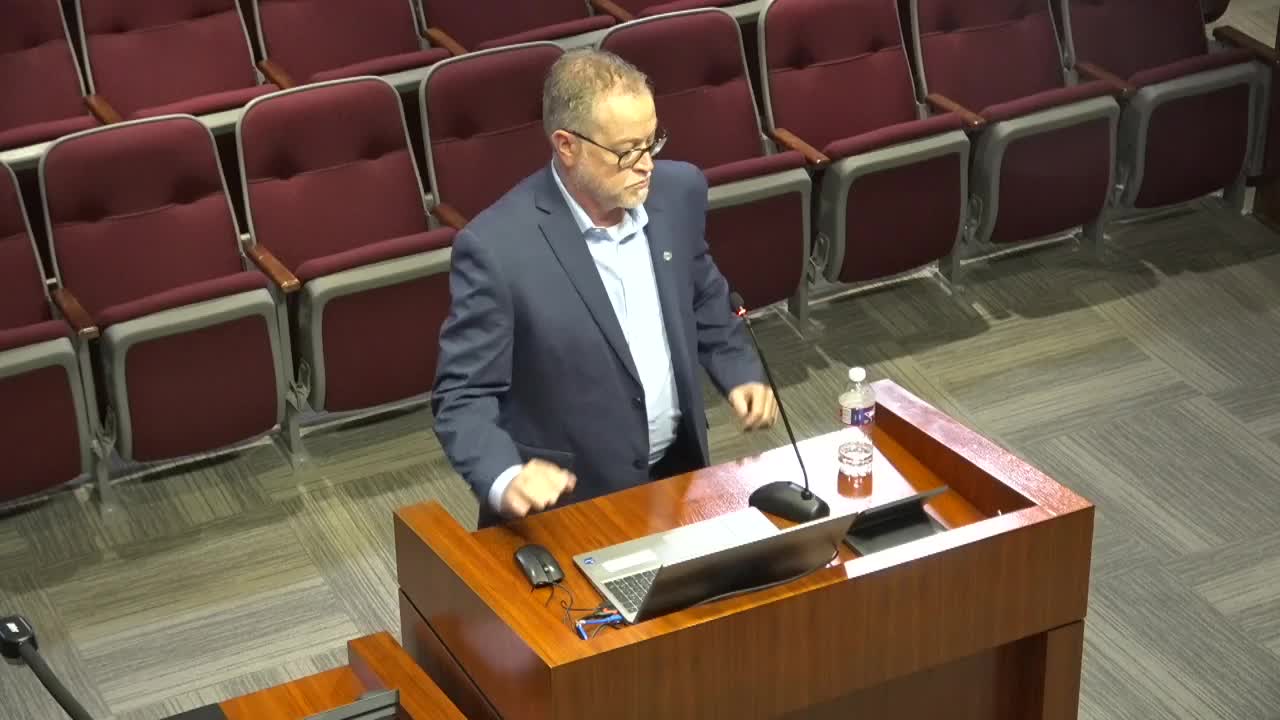Garland adopts PACE program to finance commercial energy, water upgrades
October 06, 2025 | Garland, Dallas County, Texas
This article was created by AI summarizing key points discussed. AI makes mistakes, so for full details and context, please refer to the video of the full meeting. Please report any errors so we can fix them. Report an error »

The Garland City Council voted unanimously Oct. 6 to adopt a resolution establishing a City of Garland PACE program, a property-assessed clean energy financing tool that connects private lenders with property owners to pay for permanent energy and water-efficiency improvements.
Assistant City Manager Andy Hesser explained the PACE framework and next steps to the council, noting the state enabling law and program history. "This allows local governments to establish a program that provides low cost financing ... for renewable energy, energy efficiency, water efficiency upgrades to commercial buildings, industrial buildings and multifamily over the size of 5 dwelling units," Hesser said, adding the statute is implemented under the Texas Local Government Code, Chapter 399.
Under the PACE structure described in the presentation, financing comes from private lenders, is tied to a property through a contractual assessment lien and is intended to be aligned with expected utility savings (an investment-to-savings ratio of at least 1:1). Hesser said property owners must obtain written consent from existing lien holders because the PACE assessment lien can be superior to other encumbrances; if a property owner fails to pay, the authorized representative will pursue collection and the city could use statutory tax-delinquency tools if necessary.
Councilmembers asked several clarifying questions. Councilmember Thomas asked what incentive an existing mortgage holder would have to consent to the senior position of a PACE lien; Hesser said lien holders will be notified and must assess their own risk, and suggested improvements that raise rents or occupancy could make properties more attractive to mortgage holders. Councilmember Williams asked what local industries or property types might use PACE; Hesser replied it can suit aging shopping centers, older multifamily stock and water-intensive industries seeking to modernize equipment.
Hesser described next steps if the council approved the resolution: finalize a professional services agreement with an authorized representative such as Lone Star PACE or Texas PACE Authority, contract for baseline energy measurements and third-party verification, and then allow property owners to pursue financing with private lenders. A public hearing was held earlier on the item; no members of the public spoke during the hearing.
Councilmember Moore moved to approve the resolution; Mayor Pro Tem Tim Luck seconded. The motion passed unanimously.
The PACE program does not use public funds directly; according to Hesser, it is intended as an economic development tool to reduce upfront costs for property owners and improve building stock through private financing mechanisms.
Assistant City Manager Andy Hesser explained the PACE framework and next steps to the council, noting the state enabling law and program history. "This allows local governments to establish a program that provides low cost financing ... for renewable energy, energy efficiency, water efficiency upgrades to commercial buildings, industrial buildings and multifamily over the size of 5 dwelling units," Hesser said, adding the statute is implemented under the Texas Local Government Code, Chapter 399.
Under the PACE structure described in the presentation, financing comes from private lenders, is tied to a property through a contractual assessment lien and is intended to be aligned with expected utility savings (an investment-to-savings ratio of at least 1:1). Hesser said property owners must obtain written consent from existing lien holders because the PACE assessment lien can be superior to other encumbrances; if a property owner fails to pay, the authorized representative will pursue collection and the city could use statutory tax-delinquency tools if necessary.
Councilmembers asked several clarifying questions. Councilmember Thomas asked what incentive an existing mortgage holder would have to consent to the senior position of a PACE lien; Hesser said lien holders will be notified and must assess their own risk, and suggested improvements that raise rents or occupancy could make properties more attractive to mortgage holders. Councilmember Williams asked what local industries or property types might use PACE; Hesser replied it can suit aging shopping centers, older multifamily stock and water-intensive industries seeking to modernize equipment.
Hesser described next steps if the council approved the resolution: finalize a professional services agreement with an authorized representative such as Lone Star PACE or Texas PACE Authority, contract for baseline energy measurements and third-party verification, and then allow property owners to pursue financing with private lenders. A public hearing was held earlier on the item; no members of the public spoke during the hearing.
Councilmember Moore moved to approve the resolution; Mayor Pro Tem Tim Luck seconded. The motion passed unanimously.
The PACE program does not use public funds directly; according to Hesser, it is intended as an economic development tool to reduce upfront costs for property owners and improve building stock through private financing mechanisms.
View full meeting
This article is based on a recent meeting—watch the full video and explore the complete transcript for deeper insights into the discussion.
View full meeting
